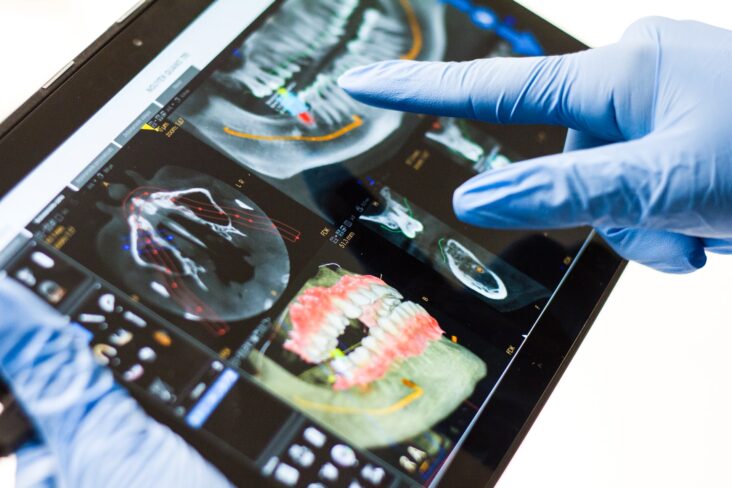Bleeding gums can signify a serious dental health issue and, left untreated, can lead to further dental problems down the line. It’s vital to understand what bleeding gums mean and when to see your gum dentist if you experience this:
What Are Bleeding Gums?
Bleeding gums are a common dental issue that can be due to different factors. Bleeding gums can be one of the signs of poor oral hygiene, gum disease, or even a more serious medical condition. It’s important to understand what causes bleeding gums, what treatment may be needed, and when to see a doctor.
What Causes Bleeding Gums?
Bleeding gums can be caused by a variety of factors, including:
Poor Oral Hygiene
Poor oral hygiene can lead to the buildup of plaque and tartar on the teeth and gums. Plaque is a sticky film of bacteria coating the teeth and gums, while tartar is a hardened form of plaque. This causes inflammation and irritation of the gums, leading to bleeding.
It is crucial to brush and floss twice daily to prevent plaque and tartar buildup. This will help to keep your gums healthy and reduce your risk of gum disease. Additionally, you must use a soft-bristled toothbrush and brush in a circular motion to minimize damage to the gums.
Hormonal Changes
Hormonal changes can affect the body in many ways, and the oral cavity is no exception.
Hormonal fluctuations can cause body changes, making gums more prone to bleeding. This can be especially true during puberty, menopause, or pregnancy. During these times, the body’s hormone levels can fluctuate. They can cause an increase in the body’s production of certain hormones that can lead to swollen and irritated gums.
Medications
Medications are one of the most common causes of gum bleeding. Certain medications can cause gum inflammation, which can lead to bleeding. This can include antibiotics, non-steroidal anti-inflammatory drugs (NSAIDs), and anticoagulants.
Vitamin Deficiencies
Bleeding gums can be a worrying symptom, indicating many underlying health problems. A common cause of bleeding gums is vitamin deficiencies, which can occur when the body lacks essential vitamins and minerals.
A lack of vitamin C is one of the most common causes of bleeding gums. Vitamin C is crucial for producing collagen, which helps form healthy gum tissue. Without enough vitamin C, the gums can become weak and prone to bleeding.
Mouth Injuries
Bleeding gums can be a very alarming symptom and can be due to a number of different factors. One of the common causes of bleeding gums is mouth injuries. This can be due to physical trauma, such as biting your cheek or tongue, or dental procedures like extractions or scaling. This type of injury can cause the gums to become inflamed, leading to bleeding.
When to See a Dentist Due to Bleeding Gums
It’s necessary to see a doctor if you experience bleeding gums when brushing your teeth, flossing, or after eating.
If you notice your gums are swollen and red, these could be symptoms that could indicate an infection or other medical issue. If you experience pain or discomfort in the gums, this may be a sign of a more serious problem. If you have the above symptoms, you should see a doctor as soon as possible.
It’s also important to see a doctor if you experience bleeding gums for more than two weeks. This could be a sign of a more serious medical condition and should be addressed by a doctor.
Conclusion
Bleeding gums can be caused by various factors and can signify a more serious medical condition. Understanding what causes bleeding gums, how to treat them, and when to see a doctor is essential. If bleeding gums persist despite proper oral hygiene and treatment, then it’s important to see a gum dentist.
Watertown Dentistry offers you the services of skilled dental experts in Watertown and nearby areas. Our gum dentist can check the health of your gums and determine if an underlying condition causes the bleeding you experience. Schedule your appointment with Watertown Dentistry today!

